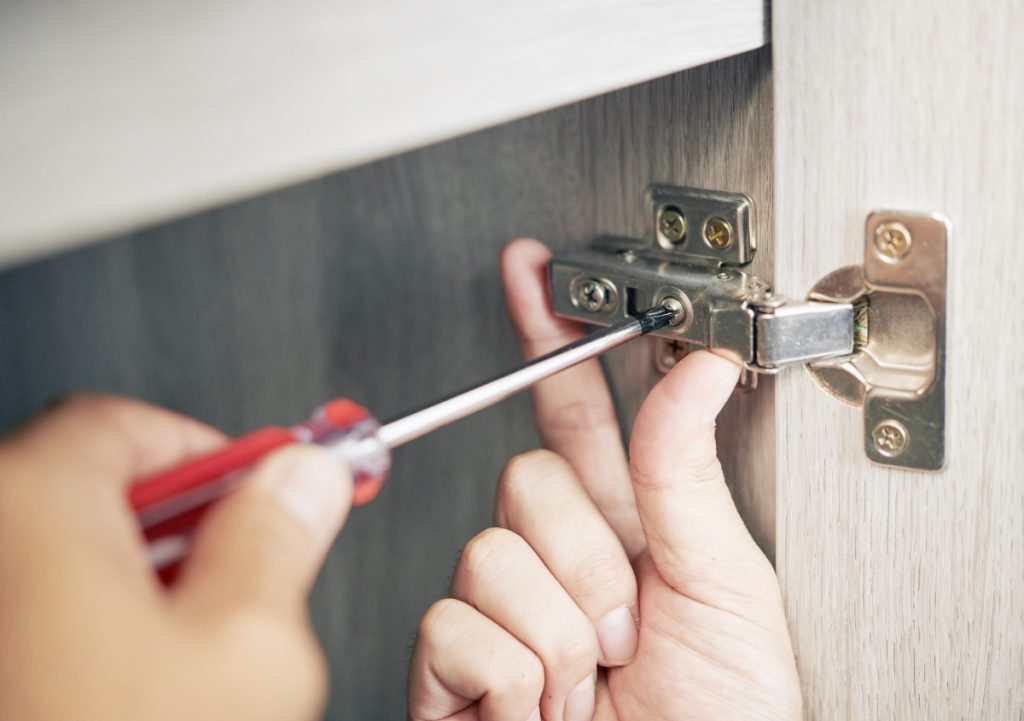If you’re embarking on a kitchen renovation or remodeling project, assembling new cabinetry can be an exciting yet daunting task. Whether you’re a DIY enthusiast or plan to hire a professional, proper assembly is critical for achieving a functional and aesthetically pleasing kitchen.
To bring your vision to life, we’re here to offer practical tips and expert advice to help you navigate the process of assembling kitchen cabinets. From measuring and planning to installation and final touches, we will cover all aspects of the assembly process, including the needed tools and common pitfalls to avoid.
Also of note is our helpful general assembly video library, which walks you through a step-by-step instruction for installing all types of RTA cabinets.
Let’s dive in and get those gorgeous new cabinets in place!

What tools will you need to assemble your cabinets?
If you’re going to attempt the assembly on your own, installing kitchen cabinets typically requires a range of tools. Here is a list of suggested tools that you may need during installation:
Cordless drill
For all RTA cabinets, you will need to screw the various pieces together to assemble the finished structure using a cordless drill, as well as to secure the cabinet in place.
Measuring tape
This tool will make it easy to measure the cabinet’s height, the wall, and any other dimension information needed during the installation process for optimal accuracy.
Stud finder
To locate the studs in your wall(s), you’ll need to use a stud finder. You can then use the studs to anchor the new cabinets and bear their weight.
Screws and nails
Of course, you’ll need finishing screws and/or nails to complete the installation and fasten together the pieces of the cabinet.
Level
To properly align your cabinets, using a 4 or 6-foot level will help you achieve the right spanning gaps between your countertops or other areas of the kitchen (such as the sink) and your new cabinets.
While these are the basic tools you’ll undoubtedly need for your cabinet installation, additional tools that can also be useful include:
- carpenter’s square
- shims
- masking tape
- wood glue
- safety glasses
- laser level
- hammer
Common pitfalls to avoid during installation
Installing kitchen cabinets can be a challenging task, and it’s important to avoid common pitfalls that may arise during the process. Here are some pitfalls to watch out for during cabinet installation
Not measuring accurately
Accurate measurements are crucial for proper cabinet installation. If you don’t measure the cabinets accurately, this can result in cabinets that are not level, plumb, or aligned properly, which can affect the overall appearance and functionality.
Not locating and securing to studs
Kitchen cabinets need to be securely anchored to wall studs for stability and safety. Failing to locate and attach your cabinets to studs can lead to sagging or falling cabinets, which of course nobody wants!
Over-tightening or under-tightening screws
When attaching cabinets to the wall or to each other, it’s important to use the right amount of force. Over-tightening screws can damage the cabinets or strip screw holes, while under-tightening them can result in loose and unstable cabinets.
Rushing the installation process
Cabinet installation requires careful planning, measurement, and attention to detail. Rushing the process will only lead to mistakes, misalignments, and other issues that may affect the final outcome.
Other resources to make installation a breeze
At RTA Cabinet Store, we want to make sure your installation is as seamless and stress-free as possible. If you’ve selected one of our products for your new kitchen cabinets, we offer several available resources to assist you during the installation, including:
- Our general assembly video library, which provide easy-to-follow step-by-step videos depending on the type of cabinet you’re looking to install
- BILT App, which can be downloaded to your phone and offers official 3D interactive assembly instructions on how to install our Quick Ship cabinets
- Our detailed frequently asked questions, which lists and responds to our customers’ most-asked questions during installation
Ready to see how easy installing your new kitchen cabinets can be? Check out our 3D assembly instructions now.
